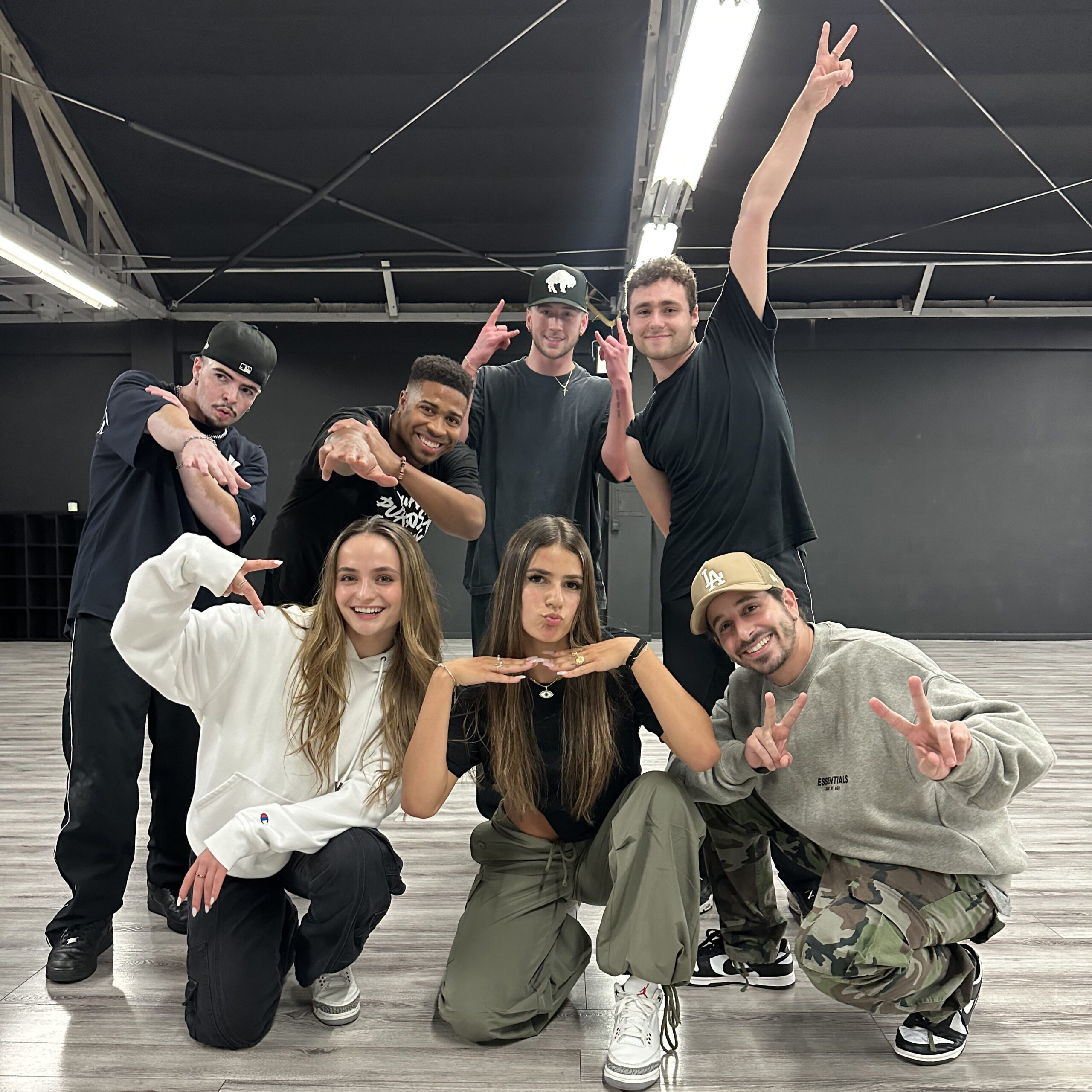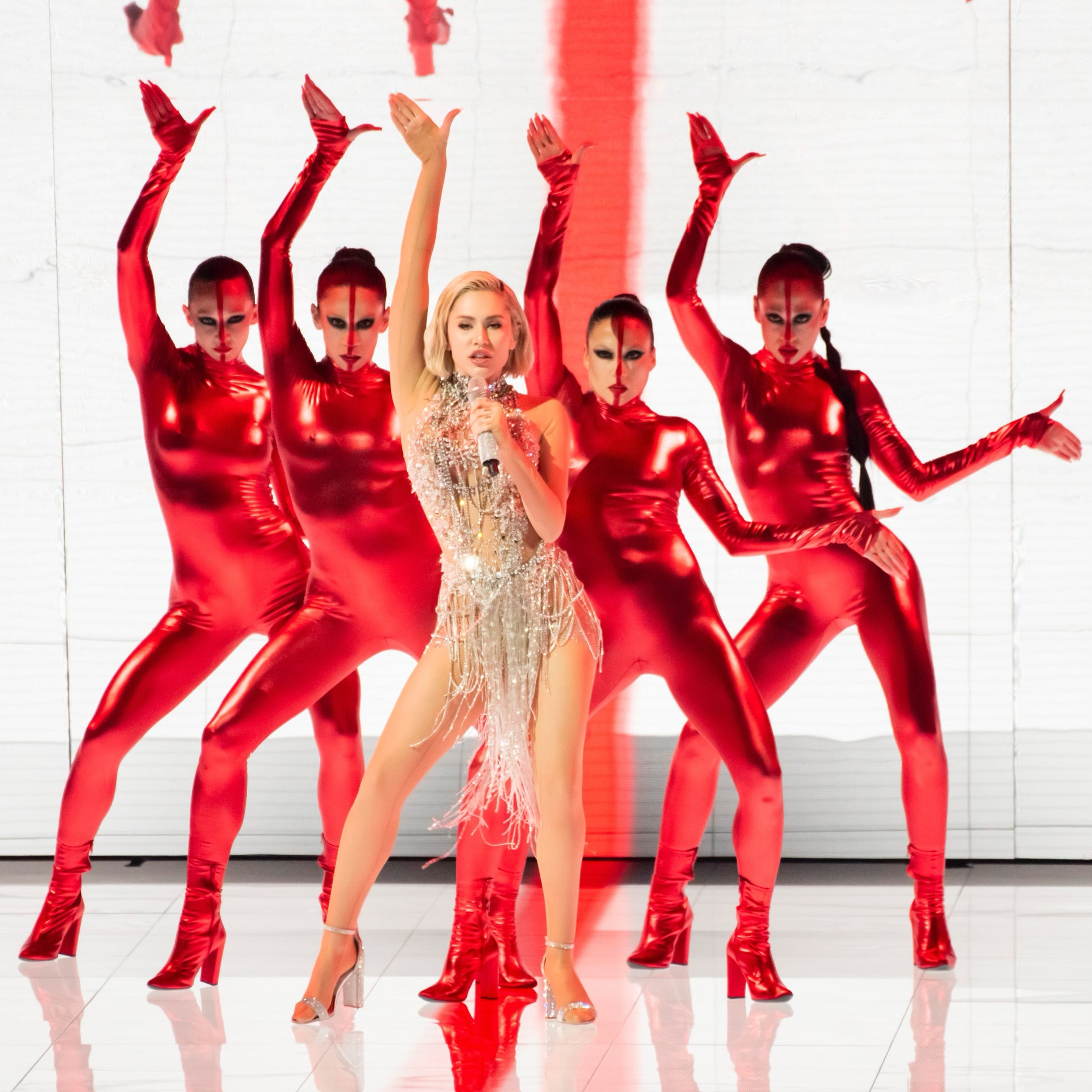What It’s Like to Choreograph for Eurovision
The first time she boarded a plane for Greece, dancer and choreographer Chali Jennings barely knew where she was going. Some friends from the Los Angeles commercial dance scene had booked a three-month gig in Athens and invited her to join. “I was like, ‘Sure. Why not? YOLO,’ ” Jennings recalls thinking.
Jennings, who had moved from Memphis, Tennessee, to Los Angeles at 19, had rarely traveled abroad. The culture shock began on Aegean Airlines, where the in-flight entertainment included clips from the Eurovision Song Contest. Since 1956, the annual song competition, a sequined spectacle of original songs from member countries of the European Broadcasting Union, has launched Abba, Celine Dion, and Riverdance, among other memorable acts. While Eurovision has long been immensely popular in Europe, until recently it has been much less widely known in the U.S.
Jennings quickly grew to love both Athens, with its over-the-top, Vegas-style music revues, and Eurovision, which she attended for the first time in 2012 when it was held in Baku, Azerbaijan. “I used to think it was ridiculous,” Jennings says, laughing. “Now I think I’m the biggest Eurovision fan in the entire world.”
She’s made four trips to the competition so far, collaborating with teams from Cyprus, Greece, and Sweden, and taking on different roles for all three countries: dancer, choreographer, dance coach, and creative director. “Even the singers who perform without backup dancers have to learn how to use their bodies in a kinetic way,” Jennings says. “There is no Eurovision without dance.”
In 2021, Jennings spent four months preparing singer Elena Tsagrinou to represent Cyprus with her catchy electro-pop hit “El Diablo.” Although Tsagrinou had “minimal” experience as a dancer, Jennings turned her into one of the show’s best movers. “Our training pushed her to the next level,” Jennings says. While Tsagrinou finished a disappointing 16th, that score didn’t reflect the career-topping accomplishment that Jennings considers her 2021 performance to be. Jennings, now 42, served as one of Tsagrinou’s four backup dancers.
2021 also marked the first year that Eurovision was available to stream on Peacock. Jennings had never encountered an American at the contest before, but that year more Americans watched. For the 2022 edition, choreographer Kyle Hanagami booked a gig with Spanish singer Chanel.
For Eurovision Song Contest 2024, which runs May 7–11, at least two more Americans are involved: Los Angeles–based choreographers Guy Groove and Kelly Sweeney. “I honestly didn’t know much about Eurovision,” Sweeney admits. But for her friend and student Silia Kapsis, she was willing to learn.

Kapsis and her mother travel to Los Angeles each summer to network and train, including taking classes with Sweeney at Millennium Dance Complex. The daughter of a Cypriot singer and a Greek lawyer with a dance background, Kapsis grew up performing with the Australian Youth Performing Arts Company and on Nickelodeon Australia. Rather than hold a public contest to choose a Eurovision performer, Cyprus’ public broadcaster tapped Kapsis to represent the island nation for Eurovision 2024, and Kapsis, in turn, tapped Sweeney and Guy Groove to choreograph for her song “Liar.”
“I did my research,” Sweeney says, noting that she was particularly inspired by “Unicorn,” Israel’s clever, bouncy third-place entry from 2023. Sweeney described her choreography for Kapsis as “cool, feminine, and super-powerful.”
When she hit the studio with Kapsis in January, Sweeney was fresh off performing in Jennifer Lopez’s new “This Is Me…Now” Apple Music Live concert, and brought that “girl boss” energy to her Eurovision gig. Even so, creating a dance for a large thrust stage and thinking so much about camera angles “brought me out of my comfort zone,” Sweeney says. She’s excited to see the final result but can’t travel to this year’s host city, Malmö, Sweden, herself because she’s busy with other projects, including a music video.
Jennings is sitting out Eurovision 2024 while making a major life transition: taking over Christie McNeill Dance Studio in Jonesboro, Arkansas, where she grew up dancing. But the Dance Cartel, a creative agency she founded in Athens, is still going strong. She plans to continue spending a few months in Greece each year, choreographing for television shows and live performances. And, yes, she wants to return to Eurovision someday. “I still want to go back and get the crown,” Jennings says. “I want to win.”




